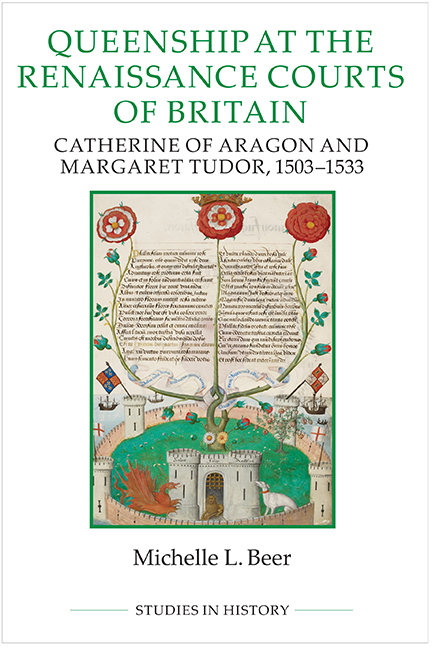Book contents
4 - Patronage in partnership
Published online by Cambridge University Press: 24 October 2019
Summary
‘Sir as for newys I have none to send, but that my lorde of Surrey ys yn great favor with the Kyng her that he cannott forber the companey off hym no tyme off the day. He and the bichopp off Murrey orderth every thyng as nyght [near] as they can to the Kyngs pleasure. I pray God it may be for my por [poor] hartts ease in tyme to come. They calnot my Chamberlayne to them, whych I am sur wull speke better for my part than any off them that ben off that consell. And iff he speke any thyng for my cause my lord of Surrey hath such wordds unto hym that he dar speke no furder.’
A few days after her marriage to James iv of Scotland, Margaret Tudor, the thirteen-year-old queen of Scots, dictated these words in a letter to her father. At first glance, this letter seems to be little more than an expression of the homesickness that she experienced in marrying a strange man sixteen years her senior. Scholars have noted the unhappiness of the young queen and commented on the difficulties faced by royal brides in the sixteenth century. While Margaret certainly had a difficult time adjusting to her new life at first, she was not merely homesick. Instead, it was the behaviour of the English envoy the earl of Surrey that was causing her great distress. During the delicate first days of her marriage, Margaret's attempts at creating a relationship with the king and her household officers were hampered by Surrey's special relationship with the king. Surrey had become so friendly with the king of Scots that James ‘cannott forber the companey off hym no tyme off the day’. This situation worried Margaret because Surrey's relationship with the king usurped the proper role of her chamberlain, Sir Ralph Verney. Margaret claimed that Surrey would not allow Verney to speak for her, even though, as chamberlain, Verney was responsible for overseeing the queen's household and representing her interests to the wider court. Margaret's access to the king was thus restricted, and her ability to compensate those who had accompanied her to England limited. She was forced to ask her father to reward her footman Thomas because ‘I am not able to recumpence hym, except the favor off your Grace.’
- Type
- Chapter
- Information
- Queenship at the Renaissance Courts of BritainCatherine of Aragon and Margaret Tudor 1503–1533, pp. 97 - 121Publisher: Boydell & BrewerPrint publication year: 2018

